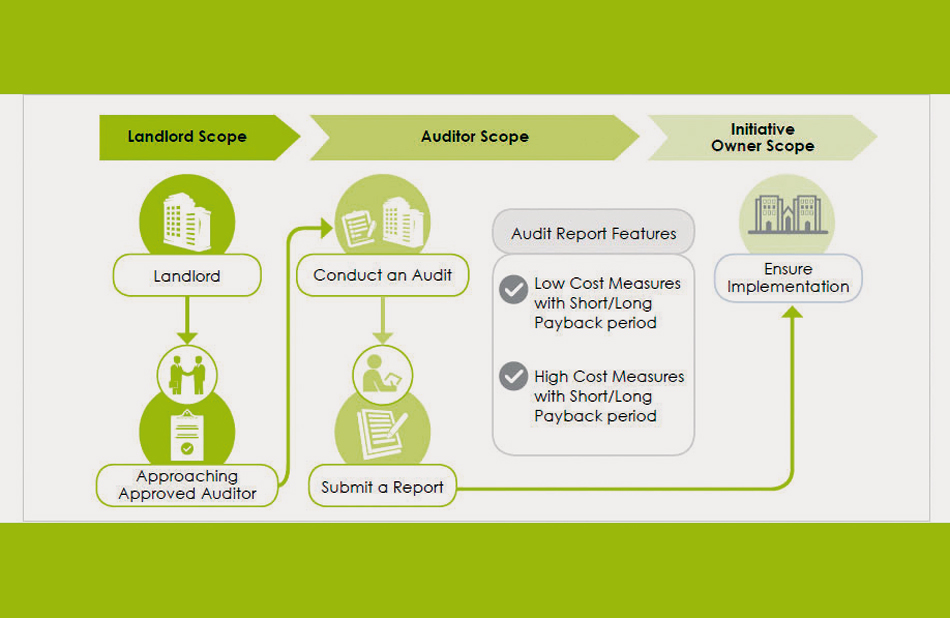

Muscat, OCT 27 - The Authority for Electricity Regulation Oman (AER) is taking steps to ensure that Omani small and medium enterprises (SMEs) stand to benefit from a new energy services market taking root in the Sultanate. Numerous Energy Service Companies (ESCOs) — businesses specialising in providing a broad range of energy solutions including designs and implementation of energy savings projects, energy auditing and retrofitting, energy conservation, energy infrastructure outsourcing, and risk management — are expected to mushroom in the coming months and years as a raft of national-level energy efficiency and conservation programmes are implemented in the Sultanate.
Spearheaded by the Authority, these far-reaching initiatives have, of late, been strongly endorsed by the National Programme for Enhancing Economic Diversification (Tanfeedh) as well as the Implementation Support and Follow-up Unit (ISFU) of the Diwan of Royal Court, among a host of other government stakeholder institutions.
Notable among these initiatives is a national programme designed to make government buildings more energy efficient through an audit of the design of their air-conditioning and other electrical installations and fittings. Deficiencies and shortcomings, if any, will be addressed through retrofits that are expected to pay dividends in the form of significantly reduced energy bills over the coming years.
Long advocated by the electricity regulator, the initiative was given a robust thumbs-up at the Energy Lab — a high-level forum held in April where a host of energy related ministries, government bodies, academic and research institutions, among other stakeholder agencies, brainstormed proposals in support of, among other goals, enhanced energy efficiency and energy management. The Authority for Electricity Regulation was named the ‘Lead Implementer’ of the programme, with Omani SMEs expected to play an important contributory role as well.
In addition to the introduction of measures and regulations designed to enshrine energy efficiency standards in new building design and construction in general, the Energy Lab also discussed a strategy for the energy audit and retrofitting of all government buildings in the Sultanate.
Investments required for the audit and upgrade of government buildings, it stressed, would be fully paid back within 6-7 years in the form of substantial energy savings.
The targets for government building energy audits and retrofits are ambitious, according to the report. “The initiative aims at inspecting and upgrading 70 per cent of government buildings until 2023, provided that each building should achieve 10 per cent of energy saving, in addition to implementing all energy consumption measures with a payment period of four years or less.”
In support of this initiative, the Authority for Electricity Regulation announced last week its plan to appoint an international consultant to provide advisory services on the roll-out of the Government Buildings Energy Services programme.
It also noted the need for Energy Services Companies (ESCOs) to step in to assist various government clients in reducing their energy consumption — an objective made all the more imperative in the wake of the implementation early last year of Cost Reflective Tariffs (CRT) for large electricity consumers, which includes many government ministries.
Underlining the pivotal role of ESCOs in this regard, the regulator said: “ESCOs have long served markets internationally by providing improved building performance, access to expertise, and installation of new more efficient equipment and training of building staff with little to no upfront costs; with inherent risks being managed by the ESCOs. The comprehensive building retrofits that ESCOs can perform will allow for simultaneous targeting of multiple building systems, including the building envelope, lighting, ventilation, and air-conditioning (HVAC).”
Further, in an effort to open up the nascent ESCO market to Omani start-ups and entrepreneurs, the Authority supported the training of an initial cohort of 50 nationals as energy auditors.
“The goal is to raise the capabilities of local SMEs to undertake the work of ESCOs and promote employability through the supply of knowledge and skills to match current and future demand in the market. These local auditors can then be initially utilized by international ESCOs that would provide them with first-hand experience in performing energy auditing of buildings that should ultimately lead to the establishment of independent local SMEs in this industry,” the Authority added.
Conrad Prabhu
Oman Observer is now on the WhatsApp channel. Click here



